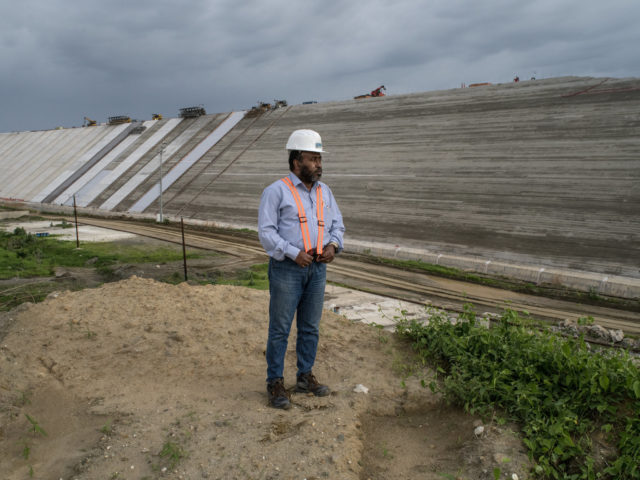CAIRO — The manager of a $4 billion dam under construction on the Blue Nile River in Ethiopia was found shot dead on Thursday, drawing an anguished reaction from Ethiopia’s leaders and setting on edge one of Africa’s most contentious development projects.
The project manager, Semegnew Bekele, who was overseeing the construction of the Grand Ethiopian Renaissance Dam, was found slumped behind the wheel of his Toyota Land Cruiser in Meskel Square in the capital, Addis Ababa, at 8:30 a.m. He had a gunshot wound to his head, the federal police commissioner, Zeinu Jamal, told reporters.
The police also found a pistol inside the car and were trying to identify its owner, Mr. Jamal said. The police commissioner did not say whether he suspected foul play, fueling speculation that the death was linked to Mr. Semegnew’s work.
When completed, the giant Renaissance dam is expected to generate 6,400 megawatts of hydroelectricity that will more than double Ethiopia’s current production and potentially allow the country to earn hundreds of millions of dollars in energy export revenues. But the project has met with stiff resistance from Egypt, where many fear it will cut into the country’s already strained supply of Nile water.
“This is our baby,” he told The New York Times in May during a tour of the dam in the Ethiopian highlands, five miles from the border with Sudan. “This is what we are saying. Not just me — all Ethiopians.”
His sudden death sent ripples of sorrow across Ethiopia on Thursday. Grief-stricken citizens scuffled with the police as they attempted to lay flowers near the bloodstained vehicle where Mr. Semegnew was found. Prime Minister Abiy Ahmed was “saddened & utterly shocked,” his chief of staff, Fitsum Arega, said in a Twitter post.
The Renaissance dam, Africa’s largest hydropower project, is a symbol of Ethiopia’s economic ambitions. It will cost at least $4.2 billion to build, officials say, with China separately funding electricity infrastructure projects costing about $1 billion. But the project has stumbled this year.
Mr. Semegnew was in Addis Ababa on Thursday to give a news conference at a time of growing public unease over delays in the project and concerns about corruption and mismanagement, officials said. He died hours before he was scheduled to speak.
Standing atop the dam in May, Mr. Semegnew offered his usual optimistic assessment of the project, which he said was about two-thirds completed, and he played down the fears of downstream countries, notably Egypt.
The dam had turned Ethiopia into “the power hub of the region, of the continent,” he said, and it would be used only to generate electricity, and not for irrigation.
He declined to say why the project’s completion date had been repeatedly delayed over the past year. “I cannot comment to you on this,” he said.
Those delays, and the dam’s generally opaque finances, have become matters of considerable speculation in Ethiopia in recent weeks. Some people who posted messages on social media sites suggested that Mr. Semegnew was killed because he was planning to name corrupt officials who were making money from the project or that Egypt had somehow played a role in his death.
None of the commentators offered evidence to support those conspiracy theories, but they did appear to reflect growing public disquiet about a project that is behind schedule, has consumed huge amounts of taxpayers’ money and has increased tensions with Egypt.
An upbeat visit to Cairo by Prime Minister Abiy last month improved that often-tense relationship. The visit was part of Mr. Abiy’s dizzying series of reforms, including peace overtures to rival Eritrea, since he came to power in April.
But since then, technical talks on the dam between Egypt, Ethiopia and Sudan have stalled again.
The discovery of Mr. Semegnew’s body was the second violent drama of the past month in Meskel Square, perhaps the most famous plaza in Addis Ababa.
At least one person was killed during a rally in the square in June, when an assailant hurled a grenade just minutes after Mr. Abiy delivered his first public speech in the capital.
The grenade fell short of Mr. Abiy and exploded among his supporters, not far from where the Mr. Semegnew’s body was found on Thursday. Security officials have not said publicly who was responsible for throwing the grenade, but at least 30 people were arrested.

























